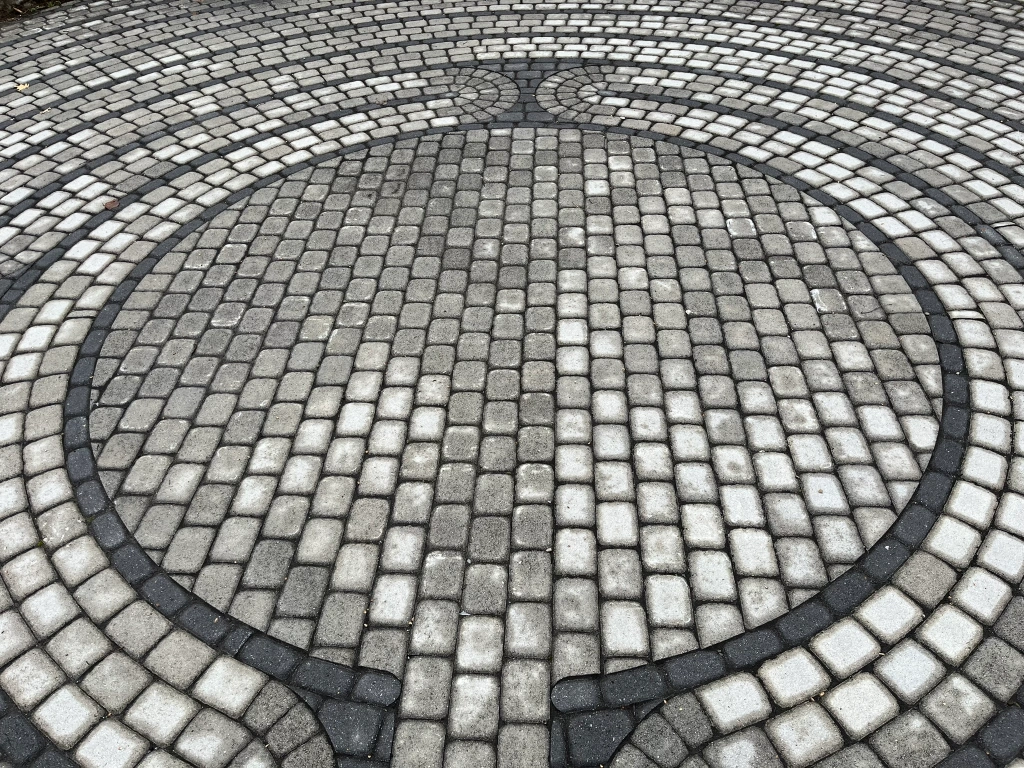I’ve been exploring Christian mysticism lately. I’ve recently read several books by Richard Rohr and Cynthia Bourgeault. I’ve been listening to the podcast “Turning to the Mystics.” I’m currently reading The New Big Book of Christian Mysticism. I think my interest in the mystics started a few years ago when someone told me that I’m a mystic. I’ve never been sure what exactly they meant by that, or whether they’re right, but it’s been a slow burn to lead me toward considering what mysticism is all about. It might explain my connection to labyrinths, and my appreciation for silent retreats at Holy Cross Monastery.
But anyway, I’m not going to write a blog post explaining what Christian mysticism is. At least not right now. I am by no means equipped for that. Feel free to follow some of the links in the paragraph above to get a sense.
No, I thought maybe I’d just write a few posts about some things I appreciate about mysticism, or thoughts that seem to connect with it. For today, I want to briefly discuss two sentences that I’ve written in the past year, which have stuck with me. Did you ever write or say something offhandedly, and then only afterward look back and say, “Where on earth did that come from? That’s kind of deep.” That happens to me now and then. Here are the two examples I’m thinking of:
“If it isn’t poetry, it’s not about God.”
“Take off your vocabulary, for this is holy ground.”
One thing I have learned (from mystics and others) is the importance of silence. That God’s presence can become clearest to us in moments when we are deliberately quiet, meditatively trying to tune out distractions. I have experienced that, although I often find it very hard to quiet down. I have also found that walking a labyrinth seems to be a way for me to take a “shortcut” to the quietude. Somehow labyrinths are places of “instant meditation” for me.
But I’ve also found something of a “companion truth” to the importance of silence. Just as silence helps us notice God’s approach to us, so too does God’s approach to us provoke a feeling that leads to the inability to speak clearly. I’ll (try to) explain.
When I think about God, I can come up with so much theology, so much philosophy, so many sermons and defenses and descriptions. I can tell you how wrong particular theologies or interpretations are.
But when I experience God’s presence, my words dry up. My mouth opens, but there is nothing ready to come. I am awed to silence. The closer I feel God is to me, the less I can speak, the less the words I know even make sense to me. And the most I can say is “wow” or “yes.” And when I try to speak about the experience later, I can sometimes describe the externals of it in detail, but when trying to speak about the experience itself, about the nature of God who allowed me a glimpse — regular words fail. Only poetry remains.
This is why I believe scripture is written as it is. It’s all a story. It’s all poetry. It’s all metaphor, but that doesn’t mean it isn’t true. On the contrary, it makes it so much more true. The more poetic it is, the more difficult it is to comprehend on a rational level, the closer it is to the presence of God. If it’s not poetry, it’s not really about God.
That’s my rule-of-thumb for whether I’m close to God or not these days: can I put it into words easily? If so, then I’ve still got a ways to go.
There’s a delicious irony for me in this – I am someone who so much defines myself by my words, and someone who deeply appreciates using my words to talk about my relationship with God. And yet, this very relationship erodes my words away, the closer I get. Forcing me to work with fewer and fewer words — no, not forcing — inviting me to work with fewer and fewer words, inviting me to find ways to talk and write that get harder and harder with each breath. But it’s beautiful. And it’s mystical. And it’s true.
Image by WalterClark from Pixabay




Leave a comment